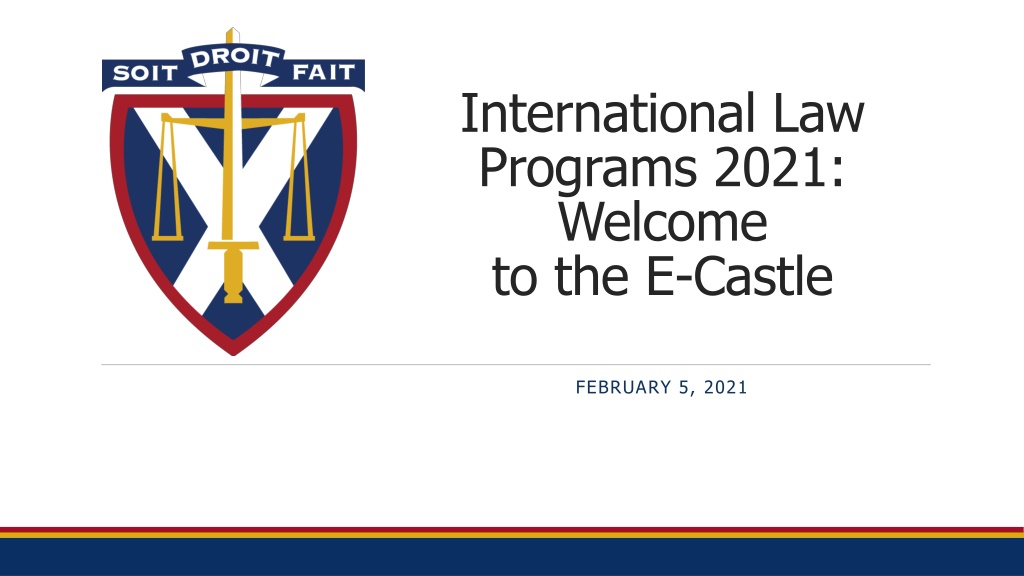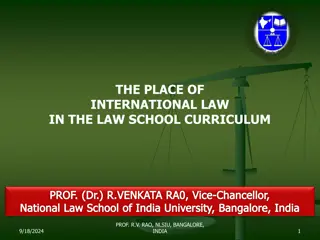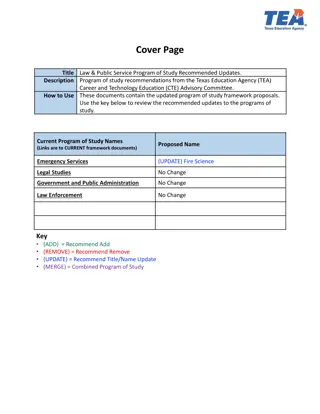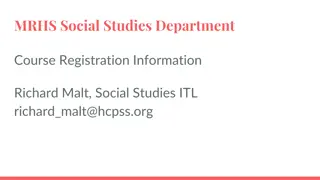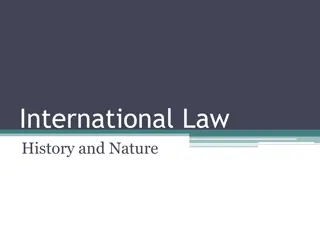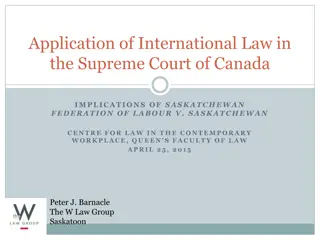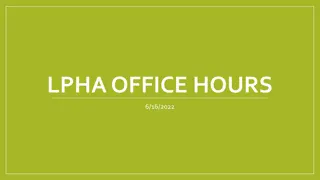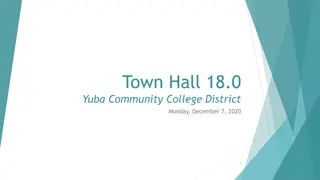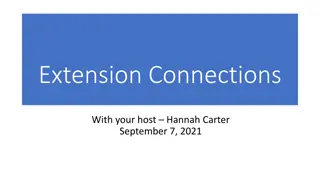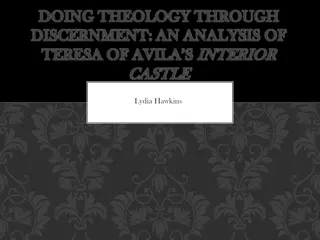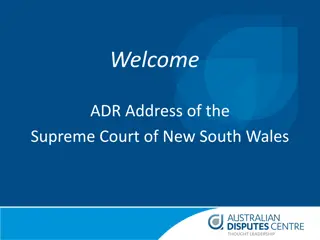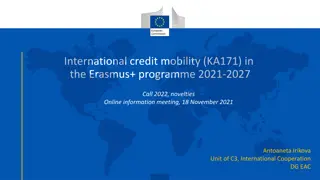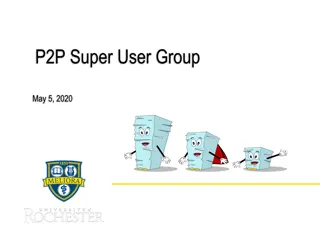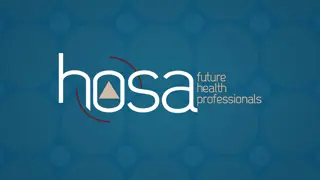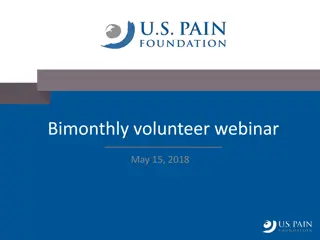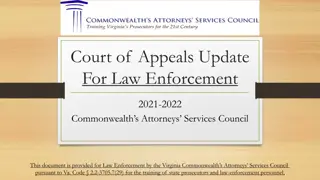International Law Programs 2021: E-Castle Updates and Course Offerings
Explore the online programs offered by the International Law Programs in 2021 at the E-Castle. Discover the benefits, courses available, program dates, instructor insights, and more. From International Business Law to Public International Law, gain valuable knowledge and networking opportunities in the field of international law. Get ready to embark on a journey towards a successful career in international law.
Download Presentation

Please find below an Image/Link to download the presentation.
The content on the website is provided AS IS for your information and personal use only. It may not be sold, licensed, or shared on other websites without obtaining consent from the author. Download presentation by click this link. If you encounter any issues during the download, it is possible that the publisher has removed the file from their server.
E N D
Presentation Transcript
International Law Programs 2021: Welcome to the E-Castle FEBRUARY 5, 2021
Todays Topics Benefits of the Online Programs Courses and Dates Instructor Updates Scheduling and Time Zones Guest Speakers and Career Panels Internship Opportunities In-Person Activities and Facilities? Using Program Credits Program Fee and Financial Assistance Next Steps / Late Applications 2020 Student Insights Questions?
The online programs share many of the benefits of the programs at the BISC: Benefits of the Online Programs Study international law with leading practitioners and academics. Lay the foundations for becoming a first- rate international lawyer. Learn how to build a career in international law.
Build your job application profile and demonstrate interest and initiative. Complete nine upper-year degree credits before 2L recruitment. Build lasting friendships and networks with classmates, instructors, guests, and alumni.
Programs and Courses International Business Law (IBL) Introduction to International Business Law International Economic Law International Commercial Law Public International Law (PIL) Introduction to Public International Law International Protection of Human Rights and Refugees The Law of Armed Conflict and International Crimes
Program Dates May 7 to June 30 Friday, May 7: Online Orientation Day Weeks 1 & 2: Introduction to Public International Law or International Business Law May 24 (TBC): Introductory course exam May 25 June 25: Courses 2 and 3 in each program June 28-30: Exams for courses 2 & 3 June 30: End-of-term online celebration
Introductory Course Instructors (2020) Alison Mitchell Global Affairs Canada Darryl Robinson Queen s Law Paul Blustein Economics Journalist
International Business Law Instructors (2020) Andrea Bjorklund McGill Law Nicolas Lamp Queen s Law Josh Karton Queen s Law Matt Secomb White & Case LLP Singapore
Public International Law Instructors (2020) Ardi Imseis Queen s Law Michael Schoiswohl UN Office of Legal Affairs, New York; formerly with UNRWA Phillip Drew Assistant Dean, Queen s Law; former military lawyer and professor, ANU Norman Farrell Prosecutor, Special Tribunal for Lebanon Katie Gustafson Ontario Securities Commission, Former prosecutor at the ICTY Mark Searl Global Affairs Canada
Scheduling and Time Zones Classes are all taught live on Zoom, with interactive in-class activities and many guest speakers. Students are expected to attend with cameras on. The typical class schedule will be 10-11:30 and 1-2:30 eastern time. Times may vary depending on the location of the instructors. In 2020, 2 of the IBL weeks had 8:30 am and 7:30 pm classes. In 2020, several students were in BC and on the east coast.
Guest Speaker Series In addition to in-class guests, there will be events for both programs 2-3 times per week in weeks 3-7, often from 3 to 4 pm ET. Speakers will be leading international law practitioners, policy-makers, academics, and judges. Speakers will address three themes: 1) Current Issues in International Law 2) International Courts Under Pressure 3) Negotiating International Law
Career Panels Panels of alumni and guests will discuss: Using the Castle Experience in the Legal Job Market in Canada Working in International Law Working in Private Practice Abroad Working in the Public Sector BISC Castle Alumni Network A networking program provides background and contact information for program grads working in Canada and around the world, allowing e-castle students to make connections and expand their professional networks.
Internship Opportunities Students from all schools will have opportunities to apply for internships for July and August. Internships may involve academic credit for Queen s students and/or a small stipend. Organizations that hosted program interns in 2020: Canadian Bar Association Canadian Red Cross United Nations High Commissioner for Refugees United Nations Relief and Works Agency Government of Ontario Queen s students may also apply for other internships and funding opportunities coordinated by the CDO.
Using Program Credits Nine upper-year credits Complete three upper-year courses before 2L recruitment. Queen s JD students must complete 59 upper-year credits, with a minimum of 14 credits in each of 4 terms. Students may use program credits to take courses at the lower-end of full-time enrollment but may not reduce to part-time without special permission. (The program may result in extra credits, i.e. 56+9).
Early completion Students may use the 9 credits to plan early completion of the JD program in the fall of third year with a heavy course load in the other three terms. Non-Queen s students Students from other law schools receive a Queen s transcript for 3 courses. Check with your law school about the availability of transfer credits. Certificate of Completion Successful participants receive a Certificate of Completion in Public International Law or International Business Law.
In-Person Activities and Facilities in Kingston? It is possible to complete the programs from any location, subject to the comments above about time zones. If a significant number of students are based in Kingston, and if government and University rules allow, we will plan optional in-person social, sporting and/or cultural community events. We will investigate the possibility of using study rooms in the law school with appropriate distancing, etc.
Program Fee The fee in 2020 was $5,322. This amount may increase slightly, depending on the provincial tuition policy. The program fee includes the three 3-credit courses and guest speakers, career panels, and networking events. The fee does not include textbooks. The fee must be paid in SOLUS in full (less any bursary or scholarship) by May 1. Joint program and LL.M. students pay the term s Grad Studies tuition. The total amount is similar to the JD student total.
Financial Assistance Bursaries Students from all schools may apply for bursaries based on financial need as assessed by the Student Awards Office. Applicants must already be in receipt of government student loans. http://www.queensu.ca/studentawards/financial-aid/queens-financial-aid/exchange-and-bisc Scholarships Queen s Law students are eligible to apply for scholarships based on academic excellence and demonstrated interest / experience in international law. A written statement is required. OSAP Summer Extension Students on OSAP or another provincial plan can apply for a spring/summer extension. Information and the application will be available by early March.
Next Steps / Late Applications Students with offers must respond by Friday, February 12. Please respond whether you are accepting or declining. If you are waiting to hear about a possible summer job you may accept provisionally. A firm acceptance will be required by March 31. Fees must be paid by May 1. We now have a waiting list for each program, but we expect to offer places to all those who have applied so far and hope to be able to offer places to later applicants. Offers will be made to students in the order they applied. The brief application form is available on the program website at https://law.queensu.ca/programs/jd/international-learning/bisc/application-procedure. Students from other law schools must send a Letter of Permission to lawcastle@queensu.ca as soon as possible, and by March 31 at the latest. .
2020 Student Insights John Hunter: PIL 2020, IBL 2021 You may also consult with any of the 2020 students on the list of Student Advisors.
